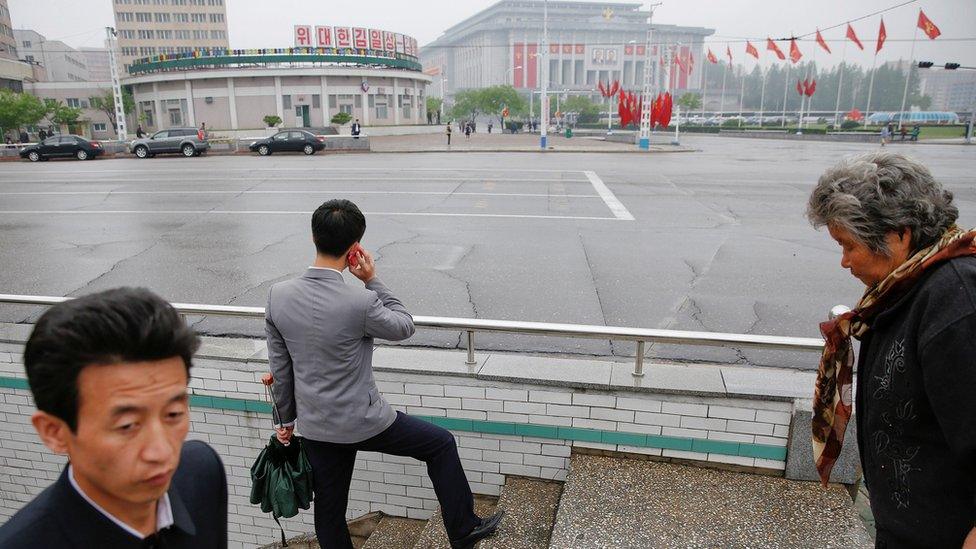South Korea holds rare court case over waitress defectors
- Published
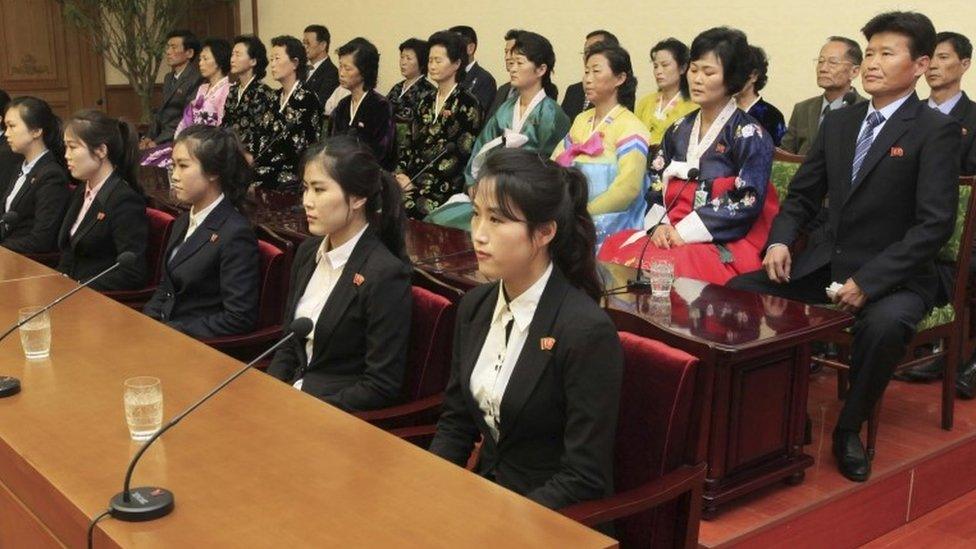
The families and colleagues of the 12 North Korean waitresses spoke to media
A South Korean court has held a rare hearing into the detention of 12 North Koreans who defected to the South.
A group of human rights lawyers who requested the hearing want to determine whether South Korea's continuing detention of the women is legal.
The women, who worked as waitresses at a North Korea-run restaurant in China, arrived in Seoul in April.
Seoul says they came of their own free will, while Pyongyang maintains they were abducted.
The women were not present at the hearing, with South Korea's spy agency saying the women did not wish to testify for fear of endangering their families.
However, the rights lawyers said the case could not proceed without the women present, and demanded that the judge be replaced. The case has been adjourned while the court considers the lawyers' request.
The hearing could set a precedent for how South Korea deals with the hundreds of defectors it receives every year.
The BBC's Stephen Evans in Seoul explains more about the case.
What have the women said?
We haven't heard from them. These particular defectors have not spoken in public and the South Korean government has indicated that they don't want to.
If that's true, it may be because of fears of repercussions on their families in the North, or because they simply don't want a public life.
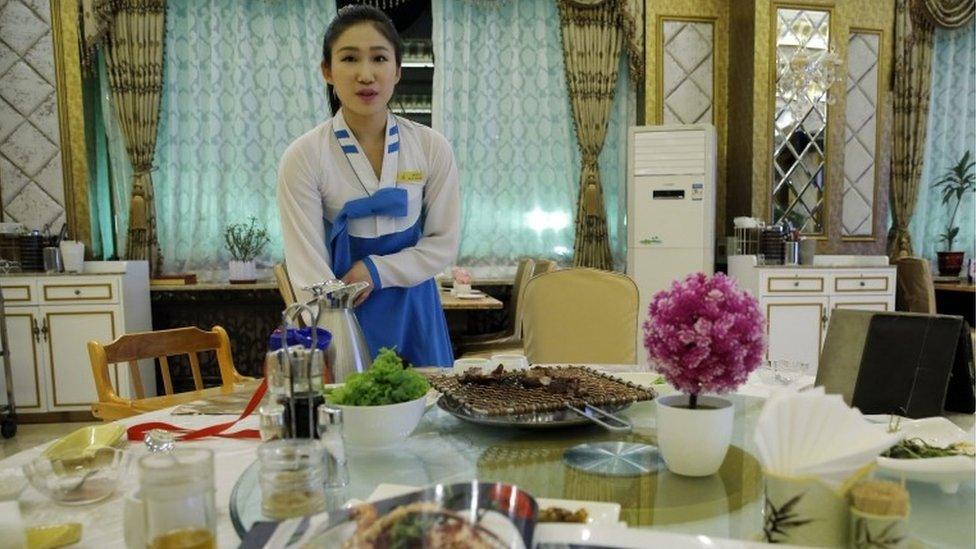
North Korea runs restaurants mainly in China as a way to earn foreign cash
Some of their relatives and friends in the North have given interviews. According to the Associated Press news agency which has a bureau in Pyongyang, Ri Gum-suk, the mother of one of the workers, So Kyong-ah, said all the parents were heartbroken.
Her husband, So Thae-song told AP: "They say our children defected, making their own free decision, but then why don't they put our children in front of us parents? I want to hear the words from my lovely daughter. Why don't they let her meet us? They say they defected willingly as a group. I can't accept this".
The news agency said the interviews were unforced though the interviewees may well have been rehearsed by the authorities in Pyongyang.
Is it unusual for the South to detain defectors?
The usual procedure when North Koreans defect to the South is for them to be accommodated in special centres.
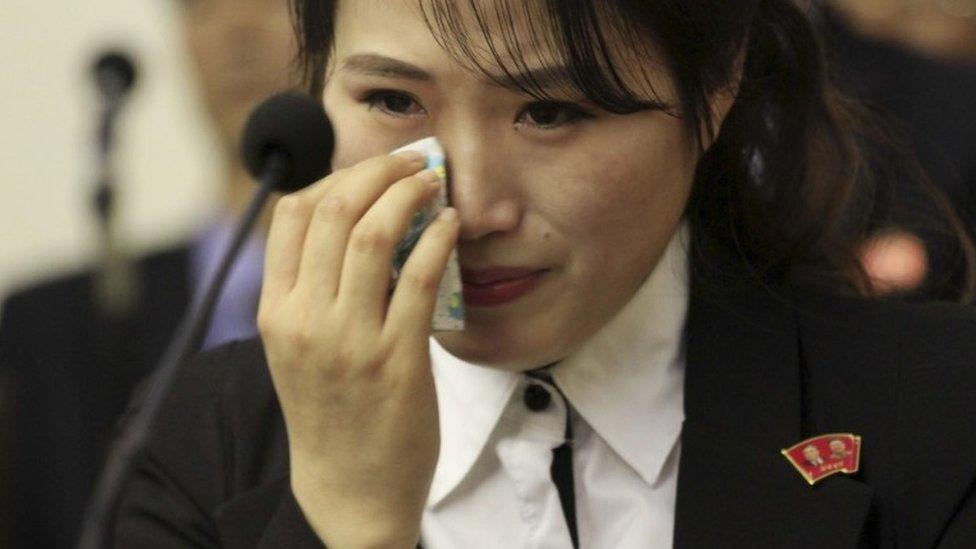
Families and colleagues of the 12 women say they don't believe they would willingly defect
They are questioned by the intelligence service to ascertain whether they are spies, and they are also given courses in how to negotiate life in South Korea - how to get a job, how to use a bank account, etc.
Many North Korean defectors find the transition hard. Suicide rates among defectors are higher than among the general population.
Who are the lawyers and why have they brought this case?
The group, Lawyers for a Democratic Society, says it "strives to further the development of democracy in Korea through litigation, research, and investigation".
It says it is "dedicated to increasing public awareness and collaborating in joint activities to protect basic human rights and attain social justice". It has more than 900 members who are prominent lawyers.
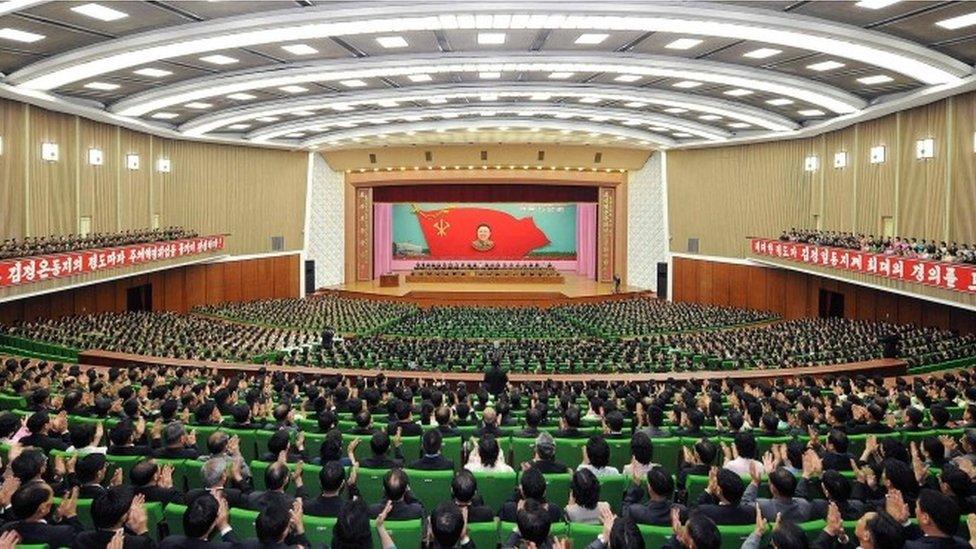
The South made the announcement of the defectors right around the time North Korea held its rare and highly publicised Worker's Party congress
It is fair to say that they are not naturally sympathetic to the current right-of-centre government but their prime concern is the protection of democratic rights.
Local media reports said the group of lawyers obtained power-of-attorney from the defectors' families in the North for the hearing.
Why has this defection attracted so much attention?
About a thousand people defect every year, external from North Korea. The number has fallen in recent years as the North's economy has improved.
Most get over the porous border with China and the indications are that the Chinese authorities are more lenient than they used to be.
These waitresses had visas to be in China because they were working openly there, so the usual argument of the Beijing authorities - that they should simply be returned to North Korea as illegal migrants - didn't hold.
The announcement of the mass defection was made by South Korea just before the high-publicity congress in Pyongyang last month.
There were accusations that it was designed to detract from the publicity North Korean leader Kim Jong-un was getting at the time, but the Southern authorities have denied that.
- Published24 May 2016
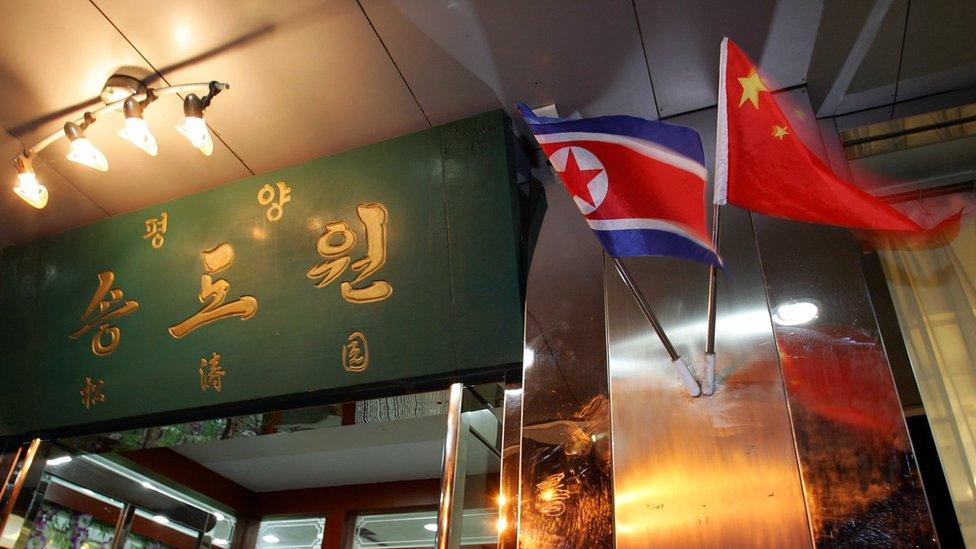
- Published9 June 2014
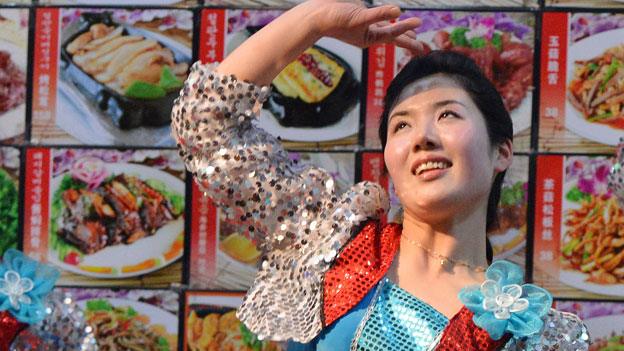
- Published6 May 2016
